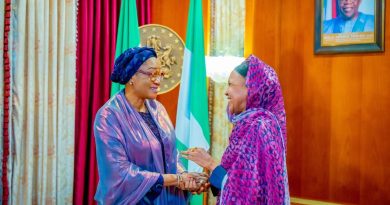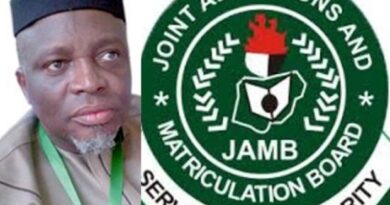ECOWAS Advances Digital Connectivity In West Africa
By Bukar BOLORI
The Economic Community of West African States (ECOWAS) Commission has moved to advance digital connectivity across the region and foster a robust and interconnected digital ecosystem.
The regional bloc hosted a technical workshop on policy and regulatory exchange and knowledge sharing on connectivity market integration in West Africa in Abuja on Tuesday and Wednesday.
The Acting Director, Digital Economy, ECOWAS Commission, Folake Olagunju, in her remarks at the opening of the Regional Workshop on Connectivity Market Policy and Regulatory Coordination, explained that the workshop seeks to engage participants in meaningful discussions around thematic areas such as strengthening policy and regulatory frameworks, harmonizing the digital market environment, and facilitating coordination among stakeholders to encourage private sector investment.
Olagunju, who represented the Commissioner for Infrastructure, Energy and Digitalisation, Mr. Sediko Douka, also said, the workshop was part of the ECOWAS Commission’s efforts to implement its Digital Sector Development Strategy for 2024-2029, which envisions digital transformation as a catalyst for economic growth, innovation, and deeper regional integration.
She said: “The strategy focuses on developing a conducive policy and regulatory environment, alongside digital infrastructure development.
“The ECOWAS Commission aims to strengthen policy and regulatory frameworks to foster a level playing field for digital connectivity solutions.
“This will enable the development of digital connectivity solutions that drive economic growth while actively engaging the private sector as a key partner in this endeavor.
“The commission also seeks to harmonize the digital market environment to enable cross-border interconnection of networks and services.
“This will facilitate the integration of the digital connectivity market in West Africa, promoting a seamless and efficient digital ecosystem.
“Furthermore, the ECOWAS Commission plans to provide catalytic public funding for connectivity infrastructure PPP projects to enhance the resilience of international and core backbone connectivity.
“This will ensure that the region’s digital infrastructure is robust and reliable, supporting the growth of digital economies.
“The commission aims to facilitate coordination among stakeholders to encourage private sector investment in digital connectivity.
“By working together, the ECOWAS Commission and its partners can create a favorable environment for investment, driving the growth of digital connectivity in West Africa.”
Olagunju emphasized the importance of collaboration, stating that: “Your participation is invaluable in shaping strategies that will drive the digital future of our region.”
The ECOWAS Commission expressed gratitude to the World Bank for its financial support and technical assistance in implementing the project.
Also speaking, the Assistant Director, Telecom and Postal Services at the Ministry of Communication, Innovation and Digital Economy, Engr. Wakili Saidu, said the workshop is a call for action—a call to reaffirm shared commitment to collaborate, align policies, and effective implementation.
Saidu stressed the importance of coordinated efforts in achieving a digital single market that benefits all citizens of West Africa.
“It is only through coordinated and coherent efforts that we can attract greater private sector investment, ensure affordability and better quality of service,” he said.
Saidu urged participants to prioritize the collective advancement of the ECOWAS region, saying, “Let us look beyond our individual national interests and prioritize the collective advancement of our beloved ECOWAS region.”
Saidu expressed gratitude to all participants for their commitment to regional development and digital transformation, wishing them productive and fruitful deliberations over the course of the two-day workshop.
The World Bank Digital Specialist, Ms. Rocio Sanchez Vigueras, said the workshop provided a platform for sharing experiences and learning from successes and challenges in implementing digital economy initiatives.
“We can learn from the good lessons and things that have worked, as well as those that didn’t work,” Vigueras said.
“I’ve worked with different countries that are part of ECOWAS, and it’s essential to share experiences and best practices to promote the single data market within ECOWAS and the African continent.”
Vigueras expressed gratitude to online participants, including governments from Spain, Sweden, and Germany, for their support in implementing a new legal and regulatory framework for the data economy within ECOWAS.
She looked forward to hearing experiences and exploring ways to support ECOWAS and other countries in promoting a single data market.
The workshop brought together representatives of ECOWAS member states, regulators, telecommunications experts, and private sector stakeholders to discuss critical dimensions of the digital transformation agenda.




